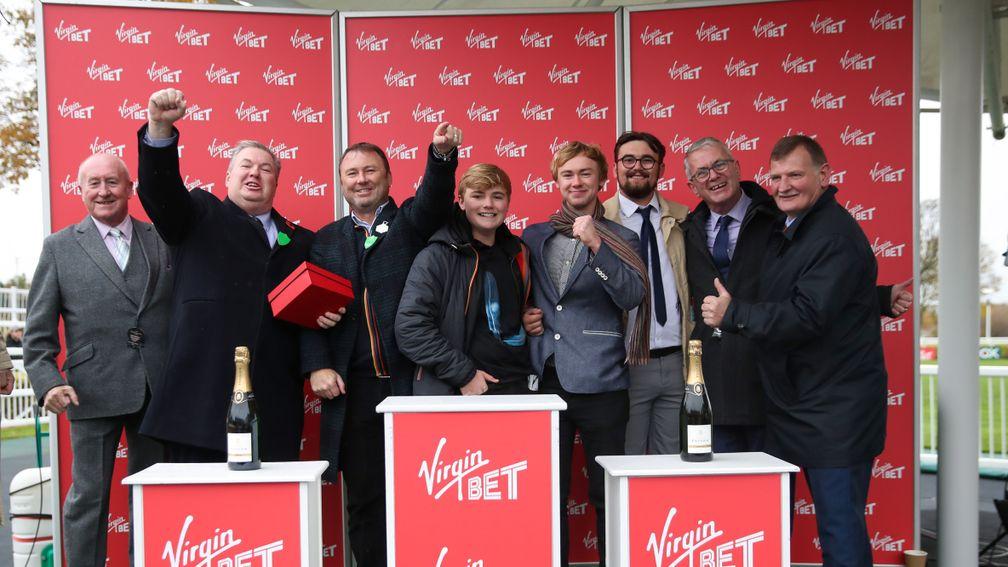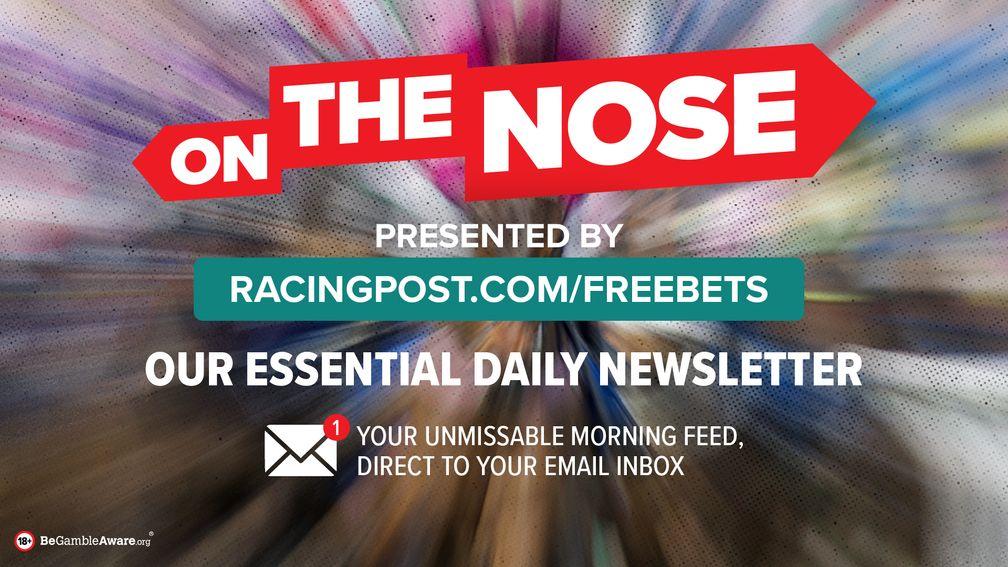- More
'It's a step too far' - Grade 1-winning owner Carl Hinchy quits racing over affordability checks

Another leading owner said yesterday that the inability to strike a sizeable bet on his horses because of affordability checks meant he had decided to quit the sport.
Carl Hinchy, whose biggest success came in 2020 when Riders Onthe Storm won the Grade 1 Betfair Ascot Chase, has owned horses in his own name for 13 years but said this season was likely to be his last.
It comes a day after Classic-winning owner Phil Cunningham said he was struggling to get a bet on and being courted by illegal bookmakers, while Olly Harris, who like Hinchy has been successful at Grade 1 level, revealed he had stopped buying new horses because of affordability checks.
For Hinchy, a solicitor who has landed a series of punts in nearly 20 years involved in the sport, the restrictive nature of affordability checks over the last few years has made it impossible for him to stay in the sport he loves.
The Gambling Commission launched a consultation last month on the government's proposed financial risk checks, which will legally formalise them. Bettors have been alarmed by the details included in the proposals, notably that winnings should only be considered in net spend calculations for as little as one week. There is also concern about how "frictionless" the checks will truly be.
"I've owned horses for 15-20 years and I've always been able to have bets on them, with varying success," Hinchy said. "Sometimes you do really really well, and you buy another horse and cover your training fees. You always took a view that between prize-money and betting you'd try and cover your expenditure. That was always the target, you didn't always achieve it but it was always the target.
"I've always taken the view we want to have a real good bet when we've lined a horse up for a race, and not being able to do that waters down your desire to be involved in racing at all. You could win your season's training fees in October and then you're having a bit of fun. You're not getting that whole experience now, all you're doing is paying bills.
"There's no point targeting a race either because it's almost impossible to get on. That's the really interesting and challenging exercise of owning a horse, plotting your way to a race from several months in advance and when it comes off it's the most incredible feeling."

Outlining the basic maths of the situation, he added: "Last season my total fees were £121,500. My share of prize-money was £94,000. I won the Old Roan Chase. I won a big race on Welsh National day and Fugitif came second three times at Cheltenham – including at the festival. So I'm doing well, but I'm still losing. And that's before you buy a horse for £60,000 who it turns out isn't any good, so you sell it for £20,000. That's another £40,000 gone."
Hinchy has attempted to provide proof of wealth to a number of firms in order to continue his hobby, but has drawn the line at requests to see his account details. "I gave them a tax return showing I'd paid the best part of a million pounds in tax, a letter from my accountant saying I'd done a share sale of one of my businesses for a lot of money, I have properties in England and Spain, but they still want to look at my bank statements.
"It's a step too far. They sent me articles about bookmakers being fined left, right and centre, but that's their business, this is mine and I'm not willing to give them any more.
"The crux of it is I can go out tomorrow and buy a new powerboat. If I want to buy a new flat, I can do it, there should be no infringement on how you spend the money you've earned. It goes to the very heart of society. Politicians are not voted into power to restrict our rights. These are fundamental rights, it's our money, we've earned it, we can spend it how we choose.
"But because of the period I've been involved with, when you could back your horses, I don't want any more involvement because the enjoyment I used to have, I can't have anymore. Do I carry on, and sink my own funds into racing? No I don't.
"I've pretty much achieved everything I could have, we've won Grade 1s and 2s from a small number of horses and punched well above our weight. When you're doing it in tandem with being able to land a punt it becomes rewarding, challenging and it makes you want to do it. When you take that big chunk away you don't want to do it anymore.
"Owners like me, we land a punt we stay in the game a couple more years. That's the heart and soul of it and they're ripping that away from you. I just can't make it pay anymore. That option's been taken away, despite some bookmakers still being very good, it's not the way it has traditionally been and you rail against the restrictions on your liberty and freedom."
- How to respond to the Gambling Commission consultation: Views can be provided at this page. After completing the introductory questions, select 'Remote gambling: financial vulnerability and financial risk' from the 'Consultations contents page'. You may choose to answer as many or as few questions as you wish. Further Racing Post guidance on responding to the consultation can be found here.
- The Racing Post wants to hear from you: What has been your experience of affordability checks since the white paper was published at the end of April, and what do you think of the government's proposals? Have affordability checks affected your betting behaviour?
It's a chance for your voice to be heard. Email the Racing Post at editor@racingpost.com with the subject 'Affordability checks' to share your experiences, your thoughts about the government's proposals, and your contact details.
Read more:
Long-term impact of dangerous affordability checks should not be underestimated, says Oli Bell
Racing must react as another leading punter says no to affordability checks
Affordability checks explained and how to respond to the Gambling Commission consultation

Sign up to receive On The Nose, our essential daily newsletter, from the Racing Post. Your unmissable morning feed, direct to your email inbox every morning
Published on inGambling review
Last updated
- Labour vice-chair of parliamentary racing group calls for 'urgent action to arrest financial decline' of the sport in Britain
- 'It's costing turnover' - restrictions are forcing down online betting says professional gambler Neil Channing
- 'Teetering on the edge' - leading owner says hostility towards racing means punters and owners are falling out of love with the sport
- 'My betting is down by more than 99 per cent' - Royal Ascot-winning owner who turned over up to £1m a day bemoans impact of checks
- Letters: Gambling Commission chief executive Andrew Rhodes responds to British racing's statement
- Labour vice-chair of parliamentary racing group calls for 'urgent action to arrest financial decline' of the sport in Britain
- 'It's costing turnover' - restrictions are forcing down online betting says professional gambler Neil Channing
- 'Teetering on the edge' - leading owner says hostility towards racing means punters and owners are falling out of love with the sport
- 'My betting is down by more than 99 per cent' - Royal Ascot-winning owner who turned over up to £1m a day bemoans impact of checks
- Letters: Gambling Commission chief executive Andrew Rhodes responds to British racing's statement